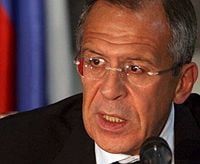By Irina Severin
Moldova as Starting Point
The Polish Eastern Partnership initiative supported by Sweden and later by other EU countries was a step meant to bolster European ambitions of Moldova and Ukraine. But putting Moldova and Ukraine in the same context with Azerbaijan, Georgia, Belarus, and Armenia – countries that except Georgia either don’t have European aspirations or they are not relevant in the existing conjuncture – diminishes the appeal of the Eastern Partnership for both countries.
What distinguishes Moldova from other Eastern partnership countries besides its small dimensions and geographical approximation to the EU is its ethnic, linguistic, historical and cultural approximation to Romania, which already is a member of the EU. This particularity is a clear entitlement for Moldova to become one day a member of the EU.






